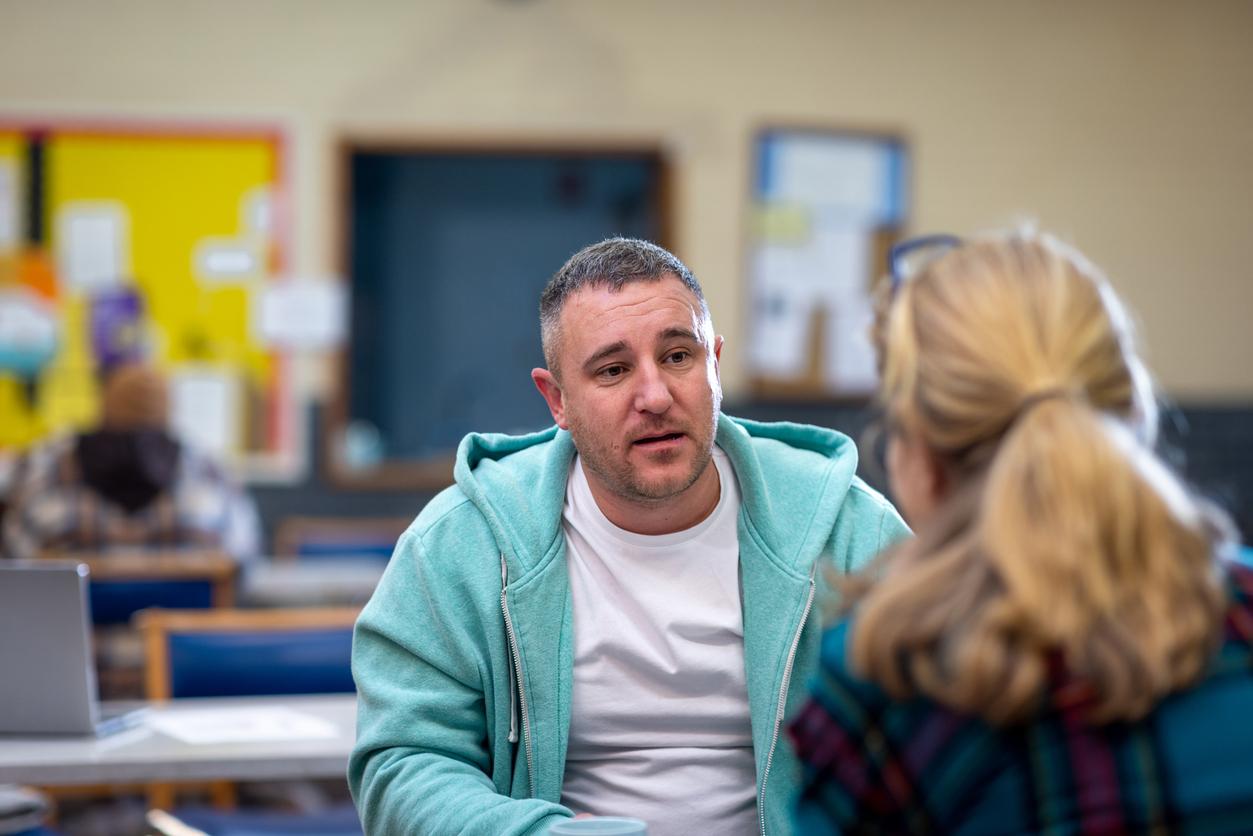
Published: Thursday 9 January 2025
On Wednesday 30 October, OTA held its Federal Election Member Forum. Members were provided with an overview of our proposed election strategy and provided feedback on the contents of OTA’s draft Federal Election Statement, which outlined the key areas we propose to advocate for in the lead-up to the 2025 Federal Election. We also invited members to provide feedback on how OTA can best support them in their self-advocacy in the lead up to the election.
What we heard
Forum participants provided great input across all six areas outlined in the draft election statement, supporting the areas outlined and the individual asks that OTA has developed. While there was broad support for the action areas and asks, feedback indicated that some asks needed additional clarification or detail about the specific ask of government. Some great suggestions were made for additional asks that could be included or solutions that could be presented.
We’ve outlined that feedback by topic area below. Further feedback is most welcome as we’ll be revising the asks based on your feedback and discussions with external stakeholders in the coming weeks.
In addition to detailed feedback on our draft asks, a key focus for discussion was the ongoing challenge of funders seeking to separate clinical and non-clinical approaches in areas such as mental health and disability. Participants noted the ongoing challenge of working in a more holistic and generalist way that emphasises the occupation-focused approach of the profession rather than what are often very narrow treatment paradigms prescribed by funders. We’ll be considering how we can focus on those issues in our updated asks.
Key Priority Areas
Participants were given the opportunity to vote on our key priority areas, with the intention that these are the areas OTA most focuses our advocacy efforts. The proposed four priority areas were supported by participants:
- Urgent Investment in the NDIS Provider Market to increase rates for OT services.
- Increase in DVA Fee Rates for all OT services.
- Inclusion of Capacity Building OT Supports in Foundational Services.
- Expansion of the Commonwealth Practical Placement Program to include OT. While OTA will include all asks from the election statement in its advocacy work, these four priority areas will be the key focus for engagement with government representatives and other stakeholders.
Workforce
OTA calls for:
- Sufficient funding and resources to implement the pending National Allied Health Workforce Strategy.
- Expansion of the student practical placement programs to include OT.
- Implementation of recommendations arising from the Independent Review of Health Practitioner Regulatory Settings, prioritising expedited registration pathways for overseas trained OTs.
| Member feedback |
|---|
| Participants noted that progress is urgently needed given the ongoing workforce shortages impacting the profession. Funding was noted as a contributor to workforce shortages in some schemes with lower fees as was the importance of funding students to undertake clinical placements. Scholarships for undergraduate and post-graduate occupational therapy training were suggested as a means of increasing access Participants highlighted the importance of supervision and support structures for new staff as well as those that are more established and that practitioners with less support are more likely to exit the profession. This was particularly noted in the context of the NDIS for early career practitioners who may struggle with the frequent changes in the NDIS when receiving limited support. Recommendations arising from the recent Commonwealth Scope of Practice Review associated with more consistent funding of supervision and early-career development were discussed and considered appropriate to be supported by OTA. |
Disability
OTA calls for:
- Urgent investment in the NDIS provider market via an immediate NDIS price increase.
- Inclusion of OT capacity building supports and services in Foundational and Early Intervention Services.
- Consistent funding for evidence-based interventions in education settings in new Foundational Supports.
- Support for providers to transition under the NDIS Reforms.
| Member feedback |
|---|
| Participants noted that pricing increases for NDIS services should be a key focus for OTA. However, there was also strong emphasis on the need to focus not only on funding but also the models that will underpin future NDIS, foundational support and mainstream services. Ensuring that there is more effective collaboration across public and private and these systems, and ongoing support for the role of occupational therapists in those models were considered key priorities. Participants also suggested that all schools should have OTs as part of mainstream supports. Participants expressed concerns about future developments in the disability sector preferencing larger providers who may focus on profit over quality. Further concerns were expressed about the format of future needs assessments and the workforce able to undertake needs assessments. |
*Please note: OTA has recently launched a dedicated project focused on ensuring OT roles under foundational supports are properly designed and implemented. A separate update will be sent to members about that work.
Mental Health
OTA calls for:
- Increased recognition and better utilisation of OT’s full scope and capabilities in mental health and psychosocial disability.
- Increased investment in public mental health settings – acute, community and rehabilitation.
- Commitment to funding access to OT services within psychosocial supports and services.
| Member feedback |
|---|
| Participants supported the asks but felt more specificity was needed. Access to occupational therapy for people with mental ill health and psychosocial disability was noted as an ongoing challenge due to lack of understanding of how OTs can contribute and restrictions in some funding programs such as the Medicare Better Access program. Enabling full scope OT practice in all funding schemes and exploring opportunities to expand access to non-clinical services were seen as key priorities for OTA. Participants also noted the ongoing challenges associated with having only 10 annual Better Access services available and the lower rate of payment for OT and its impact on access and sustainability of practice. Participants noted that, given the underutilisation of group therapy items, OTA could advocate for allowing those items to be used for consumers needing more than 10 sessions. Participants noted that OTA advocacy asks should focus on outcomes for consumers and the value of OTA mental health endorsement. |
Primary Care
OTA call for:
Changes to the Medicare Chronic Disease Management Rules:
- Enable 10 sessions, higher rebate rates, and longer appointments with a long consultation item code.
- Support a wider range of conditions that are experienced alongside chronic diseases, such as obesity, chronic pain, and falls prevention.
- Allow cross referrals from allied health professions enabling better access to Medicare subsidised OT. Increased Medicare Rebates for OT Services to:
- Ensure rebates reflect the true cost of service provision.
- Introduce rebates for travel costs for home and community appointments to support best practice approaches in natural settings.
| Member feedback |
|---|
| Participants agreed with the proposals, noting that the CDM program is a key means of supporting access to OT services in the community as well as for older people and people with disability who can’t access services through other funding. However, currently funding is insufficient. Participants discussed that an expanded CDM program could potentially be used to complement the Better Access program and allow a broader range of OT services to be provided to consumers. Cross referrals were considered a key means of supporting more effective access to services for consumers. The discussion noted that the Scope of Practice review supported some allied health to specialist referrals but did not make recommendations for allied health to allied health referral pathways and that the current review of CDM items should provide an opportunity to advocate for new pathways. |
Aged Care
OTA calls for:
- Needs-based provision of OT services.
- Effective data collection for allied health services.
- Review of AN-ACC Impact and Care Minutes on allied health provision.
- Investment in clinical positions for OTs in aged care.
- Multi-disciplinary allied health care embedded in home and residential care.
| Member feedback |
|---|
| Participants supported the aged care asks but noted that the key priority for focus needed to be recognising and funding the role of occupational therapy as members of multidisciplinary teams in both community and residential settings. Participants noted that the OT role isn’t being considered properly by providers and government in multidisciplinary teams. Participants also noted concerns about access to mental health occupational therapy in residential care, particularly given recent changes to aged care legislation that may result in an increased cohort of younger (50+) aged care residents. Discussion also noted the importance of primary care funding such as the Medicare CDM program for older Australians including those in residential care and the overlap between more accessible Medicare-funded services and access to services for older people. |
Veterans
OTA calls for:
- Urgent increase in DVA Fee Rates for OT services in alignment with equivalent professions.
- Expansion of DVA funded OT mental health services to include therapies available under the Medicare Better Access Scheme.
- Removal of treatment cycle referral requirement for OT services.
- Recognition of the unique role of mental health OTs in supporting veterans by including them as contracted clinicians under the Open Arms Outreach Program.
| Member feedback |
|---|
| Participants supported the proposed asks, noting that pricing is the single biggest factor limiting access for consumers and the ability for experienced OTs to work in this sector. However, participants also noted that the treatment cycle imposed additional costs for consumers, as well as often requiring significant work by OTs to educate GPs about requirements. Participants noted that the requirement to return to a GP for further cycles directly impacted access for some cohorts, particularly palliative clients, and that OTA should advocate for the ability for ongoing referrals to be made for some client groups. Participants also felt that the suicide prevention expertise of OTs was not sufficiently recognised and that awareness raising was required alongside expanded eligibility to provide services. |
Member Advocacy Support
The final component of the election forum focused on how OTA can best support members who want to undertake direct advocacy work. OTA noted that the profession has benefited from the work of advocates in the profession and that this is something the association wants to support. Input was sought about what members felt would best assist them.
| Member feedback |
|---|
| Members noted that they would benefit from an advocacy package that provides guidance to members about who to contact (i.e., how to identify your local MP), a list of dot points of the key priority areas from OTA, and guidance about how to present personal examples to support those asks. Participants also noted that the talking points approach used previously by OTA for the NDIS Bill was helpful. The previous Election Playbook was also noted as a helpful resource. Participants also discussed the role of engaging with consumer led organisations and other stakeholders to share information about OTA asks and the role of the profession, noting that in some cases this might be undertaken by members but also that members might identify relevant local stakeholder groups to OTA for engagement. |




